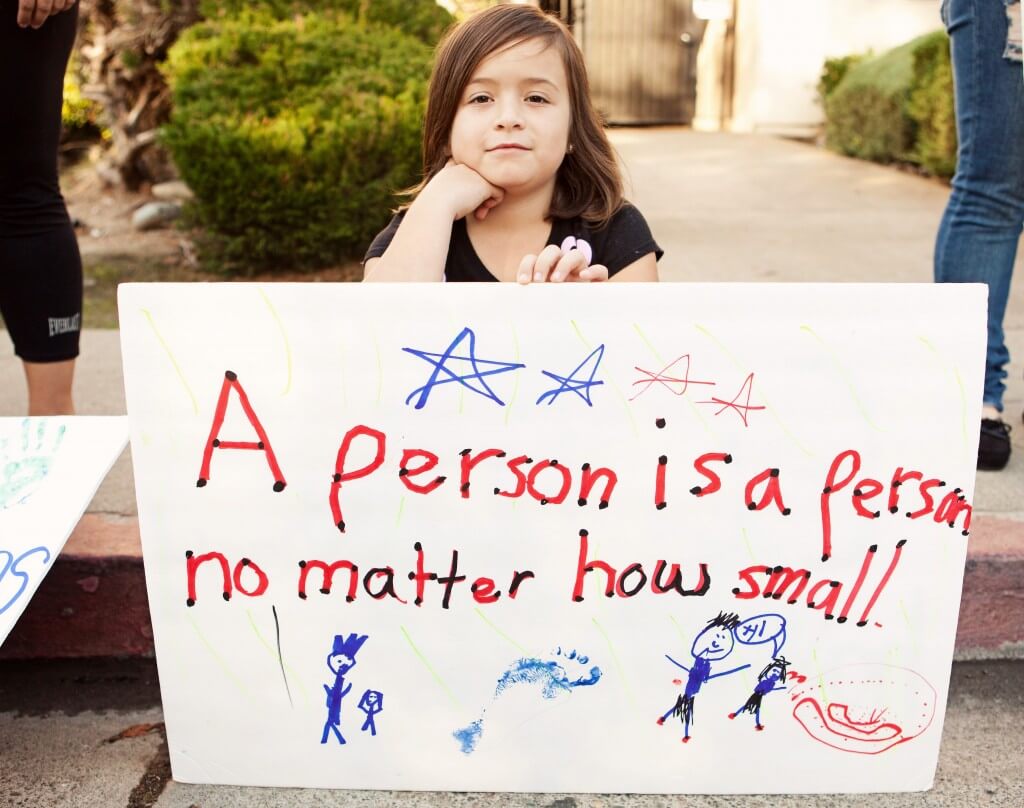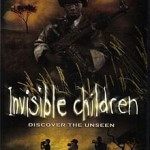 Abortion, Embryonic Stem Cell Research, InVitro Fertilization—all are procedures that involve the unborn. I have read many articles on these topics and I have heard numerous people defend their position, tell emotional stories, discuss women’s rights and give poorly executed defenses that are neither logical nor consistent. In my mind there is only one question that is relevant to these discussions. One question has the potential to make everything very clear. Is the unborn a person? That’s it. If it is a person, then whatever argument you are going to give for the destruction of the unborn needs to be just as persuasive as an argument for a 2 year old to succumb to the same fate. (I am sure that some of you are alarmed that I included InVitro in this list. I will get back to why I did so at a later point.)
Abortion, Embryonic Stem Cell Research, InVitro Fertilization—all are procedures that involve the unborn. I have read many articles on these topics and I have heard numerous people defend their position, tell emotional stories, discuss women’s rights and give poorly executed defenses that are neither logical nor consistent. In my mind there is only one question that is relevant to these discussions. One question has the potential to make everything very clear. Is the unborn a person? That’s it. If it is a person, then whatever argument you are going to give for the destruction of the unborn needs to be just as persuasive as an argument for a 2 year old to succumb to the same fate. (I am sure that some of you are alarmed that I included InVitro in this list. I will get back to why I did so at a later point.)
For simplicity, I will use the term “unborn” to refer to a human being throughout all its stages in the womb (zygote, embryo and fetus). There are two competing views when it comes to the question of personhood. One view defines personhood as being the sort of thing that is in our human nature and involves the capacities that are tied to that nature, even if they are never actualized. So in this view, personhood is tied to our essence. I think Dr. JP Moreland said it well: “Personhood is constituted by a set of ultimate capacities of thought, belief, sensation, emotion, volition, desire, intentionality and so forth….none of these ultimate capacities is physical, and therefore neither is personhood itself” (Body & Soul, Dr. Moreland & Dr. Rae, 2000, pg. 25). Under this view, I am the sort of being who, if given time and the right environment, could have emotions, beliefs and engage free acts of my will. It is the fact that I have the capacity for these acts that makes me a person. The second view of personhood is to define it based on ones functional level. So I become a person when I am able to reason, have emotion, act freely etc. The former view of personhood includes the unborn and the latter view disqualifies the unborn. My goal is to give a fairly intuitive and accessible argument for the personhood of the unborn in which I will argue for the first definition of personhood. I will try and demonstrate that our personhood is tied to the sort of beings that we are and the capacities that follow from that (whether they are actualized or not).
Before I flesh out this argument, I want to make clear what I mean when I talk about “capacity” and what I mean when I talk about “functional”. By way of example, I have the capacity to learn and speak German. I am not presently learning German nor can I speak it. However, I am the sort of being that has the inherent capacity to learn it if I chose to do so. I could get in a car accident tomorrow that damages my brain in such a way that I am unable to learn and speak German even if I wanted to. However, just because I am not able to perform that function of speaking in German does not change the fact that I am the sort of being that possesses the capacity to do so. “Humans are rational even if through defect (e.g., being a defective newborn) they cannot exercise that power, because the power of reason is possessed simply in virtue of having a human nature. It is important to distinguish between having a power and being able to exercise or develop it” (Philosophical Foundations for a Christian Worldview, Moreland and Craig, 2003, pg. 85). When I refer to one’s “functions” or “ability” I mean the expression or act of that particular power.
This argument for personhood will center on the idea that the only differences between me as a 29 year old person and the unborn are four things, none of which are relevant to the issue of personhood. They are as follows: 1. Size, 2. Level of development, 3. Environment and 4. Degree of dependency; (the acronym SLED; borrowed from Fetal Tissue and Embryo Stem Cell Research, Scott Klusendorf, http://www.str.org/site/DocServer/stemcell.pdf?docID=130 ). When most people defend the idea that the unborn is not a person, they will give one or all of these criteria but they all fall under a functional view of personhood. My goal is to demonstrate that the commonly adopted view regarding personhood as being functional is a faulty one.
Size – Objection to personhood of the unborn because it is too small: How can something as small as the period at the end of my sentence be a person? I would ask: when has one’s size had any correlation to the rights that we give or do not give them? I am 5’ 10” and taller than most women. Does that mean that I am more of a person or have more rights than other woman who are shorter and smaller than me? If I am more of a person than them do I have the right to do with them what I want? What happens when someone taller than me walks into the room? Abraham Lincoln summed up this problem perfectly in a speech he gave on April 1st, 1854: “If A. can prove, however conclusively, that he may, of right, enslave B.—why may not B. snatch the same argument, and prove equally, that he may enslave A?—You say A. is white, and B. is black. It is color, then; the lighter, having the right to enslave the darker? Take care. By this rule, you are to be slave to the first man you meet, with a fairer skin than your own. You do not mean color exactly? You mean the whites are intellectually the superiors of the blacks, and, therefore have the right to enslave them? Take care again. By this rule, you are to be slave to the first man you meet, with an intellect superior to your own” (Abraham Lincoln http://teachingamericanhistory.org/library/index.asp?document=50).
Level of development – Objection to personhood in regards to development: The unborn is not a person because it is not developed; at early phases it does not even have a functioning brain, feel pain etc. This objection is in the same vein as the “size” objection. I agree that the unborn is not as developed as the newborn. But in the same token my 3 year old daughter is not as developed as a 12 year old girl. Does that make her less of a person than the 12 year old girl? I have another problem with this. What about those who are born with mental retardation? Or those who lose their mental functions due to a car accident or old age? Does the level of my intellectual functioning or my level of consciousness determine whether or not I am a person? This question may sound rhetorical but there are many in the philosophical and scientific world who have come to this conclusion by defining personhood as such. Some agree that humans who do not meet these developmental qualifications should be killed because while they are humans, they are not persons. Peter Singer is the most well known advocate of this idea and has even written a book called Should the Baby Live? In which he defines personhood based on function/development and says that it is morally permissible to kill handicapped babies because they do not meet the criteria of personhood (which he defines as a list of functions). While this is morally despicable, I do have to commend him for being intellectually consistent. For those who adopt a functional view of personhood I would urge them to follow their belief to its logical conclusion. I think that there is a clarity that comes with what I heard one professor call “destination sickness.” People will often adopt beliefs not based on their intellectual merits but for emotional reasons. However, when you take an idea and pull out all the implications it has for other beliefs (in this case personhood as applied to the unborn), I think that the vast majority of people would not like the conclusion. The logical conclusion of this view of personhood justifies infanticide, and the killing off of the elderly and handicapped. Does this sound familiar? It should, a German man named Adolf Hilter espoused this view of persons and the elderly, the handicap, and races that were considered functionally inferior, were deemed as non-persons and were exploited and killed.
Environment – Objection to personhood of the unborn because of their location: The unborn is not a person while it is inside its mother’s body. The question that arises in my mind is how does my location or environment have any relevance to the sort of thing I am? Does a 6 inch journey down the birth canal change the ontology, or in other words, the essence of what the unborn is? Can I gain or lose my personhood based on where my address is? Let’s say that there is a baby girl named Ashley and she is born at 23 weeks weighing only 1 lb. The doctors work fervently to save her life and they are successful and now she is a thriving 3 year old. The doctors would be hailed as heroes. But let’s change this story and say that instead of saving her when she was born pre-maturely the doctor intentionally killed her. This sort of response would elicit such an outcry from everyone on both sides of the life debate, not to mention a prison sentence. Yet, an abortion at 23 weeks is legal. What is the difference? In the first example, Ashley was inside her mother’s womb and in the second scenario she was outside of it; a mere 6 inches.
Degree of dependency – Objection to personhood of the unborn because it is dependent upon its mother’s body to live. How can the unborn be a person while its life is completely dependent upon another, namely its mother and her life and body? If this is what qualifies us as persons than some of you reading this may not meet the mark. Does your body need something or someone else to live? Just because my body may depend on another or something to keep it living does not make me less of a person than someone who doesn’t have this need. “If viability is what makes one human, then all those dependent on kidney machines, heart pace-makers, and insulin would have to be declared non-persons. There is no ethical difference between an unborn child who is plugged into and dependent upon its mother and a kidney patient who is plugged into and dependent upon a kidney machine. Siamese twins do not forfeit their right to live simply because they depend on each other’s circulatory systems” (Fetal Tissue and Embryo Stem Cell Research, Scott Klusendorf, http://www.str.org/site/DocServer/stemcell.pdf?docID=130 ).
If we were to apply this same view of personhood to our everyday lives we would end up with people walking around who are non-persons as well as people who have degrees of personhood. In Klusendorf’s defense of personhood as being tied to our nature, he states: “These absurd conclusions follow from defining persons based on what they can do rather than what they are. To cite another example, if robots could do all that persons can do behaviorally, they still would not be persons. And if personhood is only a developing, gradual thing, then we are never fully human because we continue to grow intellectually and emotionally…It follows, then, that the ability to perform human functions is not a necessary condition for human personhood. Rather, a person is one with the natural, inherent capacity to give rise to personal acts–even if she lacks the current ability to perform those acts. People who are unconscious do not have the present ability to perform personal acts. We don’t kill them because of it. Nor should we kill the unborn” (Fetal Tissue and Embryo Stem Cell Research, Scott Klusendorf, http://www.str.org/site/DocServer/stemcell.pdf?docID=130 ).
When does personhood begin? It begins at conception. Any other starting place is arbitrary and falls under a functional view of personhood that cannot stand up to logical scrutiny. Such alternatives, when allowed to play out in society, lead to a definition of personhood that justifies murder, slavery, infanticide, euthanasia and genocide. What relevance does this have on our beliefs regarding the unborn? If the unborn is a person, then is it relevant that its conception was a result of the mother being raped? While it certainly is tragic that such events take place, how the unborn came into existence is completely separate from the sort of thing that is. If it is a person, then it qualifies for the same rights that we do, especially life. What about embryonic stem cell research? Which, very simply is using and then killing embryos for their stem cells so that they can be used to help treat and cure diseases. Sounds like a great plan! One problem, this plan involves killing a person. Not someone who is partially a person, but a full-fledged person. So unless you have an argument that justifies killing a 2 year old for their parts to be used to advance science, then this too does not hold its ground. (On a side-note, the really exciting research and advances that are being made in stem cell research are not from the embryonic stem cells but using adult stem cells that can be harvested without killing the donor.)
What do we do with the ever growing infertility treatment InVitro-Fertilization? In case you are new to IVF, it is when a doctor takes eggs from a woman and sperm from a man and place them together in incubators to create embryos to be implanted into the woman. So far, so good. Given that we now know that embryos are persons, here is where it gets problematic. Because of how expensive and difficult it is to retrieve the eggs from the woman combined with the low chance that they have of implanting it is very common to take 10-15 eggs, out of which maybe six or so will result in viable embryos. Most doctors will only implant two to four embryos at a time with the hopes that one will implant and grow to term. Let’s say that one of the embryos does implant out of the three that were placed inside the woman. That means that two embryos (two persons) died. At this point, the couple has a decision to make as to what to do with their leftover embryos. They can freeze them for a later date (costs around $2000 per year), destroy them or donate them to research. However, freezing embryos is not only costly but decreases their chance of surviving. According to the Genetics and IVF Institution, “Approximately, 65-70% of embryos survive thaw, 10% partially survive, and 20-25% are atretic. Our data suggests that embryos with 100% cell survival are almost as good as embryos never frozen, but only about 30-35% survive in this fashion. ” (http://www.givf.com/fertility/embryofreezing.shtml) In light of their 30-35% chance of dying and 65%-70% chance of not being “as good” as an embryo that was not frozen to begin with, the leading question in my mind is: would we run this risk if it were 2 year olds that we were talking about? Imagine you are considering an unnecessary procedure for your two year old. The sole reason for this procedure is to save you money, but your 2 year old has a 30-35% chance of dying. Would you do it? The obvious answer is “no”, so we shouldn’t consider it with embryos either.
There are a lot of different circumstances that could surround IVF. A few of which I can see as being ethically permissible since we now know that we are dealing with persons. Use your own judgment but this is something I have given much thought to and here is what seems responsible in my understanding of IVF. Circumstances in which I can foresee IVF being done in an ethically responsible manner: If (a) the woman has every reason to believe her womb is a hospitable place for an embryo to implant and grow; (b) the number of embryos implanted in her in a given cycle does not exceed the amount that her body would be able to grow and sustain (in another words, you don’t implant four knowing that statistically speaking only one will be able to “make it”). These are odds we would never consider if we were dealing with 2 year olds and so we shouldn’t consider them for embryos as well; (c) implanting more than one embryo at a time does not compromise the success of the other. So if you implant two, each of their survival is just as strong as if you implanted just one; (d) Avoid freezing embryos for later use, due to risk of killing the embryo in the thawing process; (d) lastly, limiting the number of embryos created to no more than two, for all the reasons stated above.
I have given a very logical, and what some might view as cold, case for the personhood of the unborn. I know that there are women reading this who have had abortions, gone through IVF and destroyed or frozen embryos with no intention of using them. The intention of my heart is by no means to condemn you. I fully believe that no matter how you have treated the unborn there is hope and healing to be had. But that all starts with the acknowledgement of what has really occurred. Some of you may be fired up and ready to do something about the babies down the street from you who are being killed in abortion clinics. You don’t just have to feel bad, there is something you can do!
I have been involved with an organization called 40 Days for Life. They just started another 40 day campaign and they need volunteers. You can go here to learn more and sign up for a time slot in your area:http://www.40daysforlife.com/location.cfm If you have had an abortion and you want freedom from the pain and guilt, there are recovery groups. The Alternatives Pregnancy Center has 10-12 week sessions for Post-Abortion healing. You can call 916-807-4188 for upcoming dates and locations. Or if you know of someone who is pregnant and considering an abortion, there are organizations that can provide free resources to those women that does not include ending the life of their unborn child. Here is one of them: www.svpregnancyclinic.com. If you are troubled by all the embryos that are frozen and awaiting a sure destruction, you can visit this site about adopting an embryo: http://www.nightlight.org/adoption-services/snowflakes-embryo/default.aspx , which, simply put, is done by taking another person’s unwanted, frozen embryo and implanting it in you.
My hope is that what you will take away from this is that we cannot define who is a person and who is not based on our functional abilities. Rather, the most logical definition for personhood is that it is tied to the sort of beings that we are and the capacities that follow from that. There are no human non-persons or potential persons, only full persons from the moment they are created. “….as a substance matures it does not become more of its kind; rather, it matures as a member of its kind, which guides that maturity. Thus puppies are immature dogs and not potential dogs; human fetuses are immature human persons and not potential persons” (Body & Soul, Dr. Moreland & Dr. Rae, 2000, pg 25). The acronym SLED is an easy way to think through this concept and refute the common misconceptions about the personhood of the unborn.
Photo Credit: the photo above is taken by Sarah Maizland, herself. Click here to see/read more.








